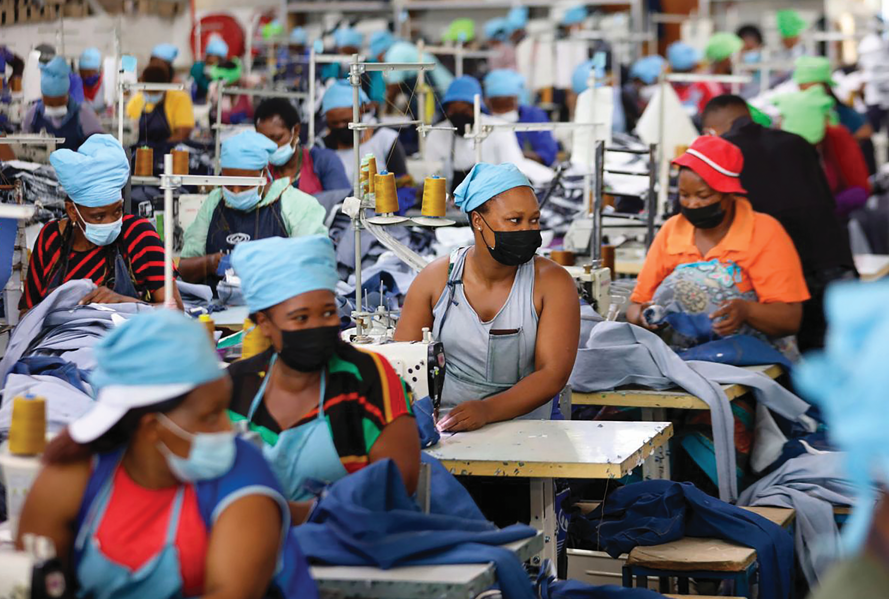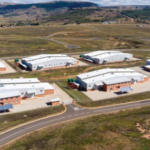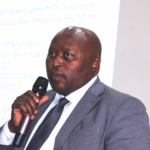Marcia Moyana
Concern has been raised that women-owned businesses are going to suffer as the United States President Donald Trump’s tariffs are rolled out across 90 countries.
The tariffs ranging from 10 percent to 41 percent on imports to the US will affect businesses from 22 African countries, with 11 of them being from the Southern African Development Community (SADC).
Lesotho has been hit with a reduced 15 percent tariff from the initially proposed 50 percent, while South African goods imported into the United States will be slapped with a 30 percent tariff.
The International Finance Corporation estimates that Africa has up to 24 percent of women who are entrepreneurs, the highest rate globally.
Many of these women struggle with access to markets, funding opportunities and an enabling environment to grow their businesses beyond their borders.
General manager and winemaker at Her Wines, Praisy Dlamini, sees the tariffs as a challenge that will stifle the growth of women who are operating in markets that have historically been predominantly male.
Dlamini explains how, as an exporter to the US, they have had to negotiate their prices down earlier amidst the uncertainty created by Trump’s threats of tariff increases.
They then had to renegotiate their prices once more.
“How are you supposed to grow? Because if you don’t have reserve capital that you can fall back on, should the situation not really improve, the sustainability of your business is threatened,” says Dlamini.
As a young company, they lack the reserves old businesses have been able to build over time and face high interest rates from banks, resulting in many young companies requiring the government’s support.
The women-owned businesses also have to deal with the unbalanced scale of gender, where women have historically been prevented from owning businesses and are still battling to find sustainable funding opportunities to compete in the already highly competitive space.
Intra-Africa trade for women
South Africa’s deputy minister of Sports, Arts and Culture, Peace Mabe, says women struggled to grow beyond their borders and governments were responsible for creating an enabling environment for their businesses to thrive.
Mabe was speaking at the DLO African Women in Leadership Summit that was held on August 5 in Johannesburg, South Africa.
During her address, she spoke about the restrictive and undefined border management laws that often work against women.
She says for intra-Africa trade to be equitable for all businesses, funding models must be reinvented to support small and medium enterprises (SMEs) and micro enterprises.
“We do not want connections, but when you do your business, it should be a business that is supported and understood. We must continue to demand not only seats at the table, but the power to shape the agenda, allocate the capital and open doors of opportunities for generations to come,” says Mabe
Opportunities for women in emerging industries
Founder and CEO of DLO Energy, Linda Mabhena-Olagunju, says that while women’s participation in the energy sector remains low, she has been spearheading conversations for women in leadership.
Through the DLO African Women in Leadership Summit, top voices across business, politics, civil society, and the creative economy have been gathering to discuss critical issues that affect women leaders on the continent.
This year’s summit, held earlier this month, sought to look at ways to close the gap between capital and opportunity for women leaders.
Noting the seven percent representation of women CEOs at the Johannesburg Stock Exchange (JSE) listed companies, a four percent representation of board chairs, and a stagnated 30 percent representation of women on boards were a concerning underrepresentation that affected mostly black women.
“I want to see more women rise into key positions in the economy, and this summit has shown that it is not just a talk shop; people make deals, strategise, formulate partnerships, and the feedback we have received over the three years is that this is a significant and much-needed platform for women,” says Mabhena-Olagunju.
As a founder of South Africa’s only 100 percent black female-owned renewable energy company in a field with only about 21 percent of women on the entire African continent.
Her De Aar-based wind farm is one of the largest wind farms in the country and currently provides power to over 200,000 households in South Africa.
The United Nations Economic Commission for Africa (UNECA) estimates that up to 50 percent or over 600 million people in Southern Africa are energy poor. While the World Bank estimates that 900 million women and girls on the African continent lack access to clean cooking technology, resulting in many of them suffering from smoke inhalation-related diseases.
Addressing energy poverty would enable girls to focus on their education, improving their health and ability to participate meaningfully in the economy.
And the clean energy space presented women with the opportunity to gain the skills and opportunities needed for them to thrive, she says.
AI is not a threat to women
The Global Head of Operational Risk Research at BMI, a Fitch Solutions company, Chiedza Madzima believes that artificial intelligence (AI) should be seen as another avenue that women can leverage on to participate in the science, technology, engineering and mathematics (STEM) field which currently on has about 30 percent of women representation.
Women can also pursue opportunities in the information communication technology (ICT) sector as website developers, coders and other required skills.
“What we do know is that STEM and ICT give us the ability to think technically and creatively. I think women can certainly benefit from more financial support programs that are specifically dedicated to supporting women in tech, health sciences or even mining, fields that are not traditionally women’s spaces because a lot of the labour no longer requires brute strength,” explains Madzima.
While some industries and skills are being replaced by AI, she highlights that AI has made doing business easy and is now at the centre of doing business globally.
Creating an environment where the ongoing process that requires investment, results in workers and AI automation processes working as a unit.
Summary
- The women-owned businesses also have to deal with the unbalanced scale of gender, where women have historically been prevented from owning businesses and are still battling to find sustainable funding opportunities to compete in the already highly competitive space.
- We must continue to demand not only seats at the table, but the power to shape the agenda, allocate the capital and open doors of opportunities for generations to come,” says Mabe.
- Noting the seven percent representation of women CEOs at the Johannesburg Stock Exchange (JSE) listed companies, a four percent representation of board chairs, and a stagnated 30 percent representation of women on boards were a concerning underrepresentation that affected mostly black women.

Your Trusted Source for News and Insights in Lesotho!
At Newsday Media, we are passionate about delivering accurate, timely, and engaging news and multimedia content to our diverse audience. Founded with the vision of revolutionizing the media landscape in Lesotho, we have grown into a leading hybrid media company that blends traditional journalism with innovative digital platforms.









